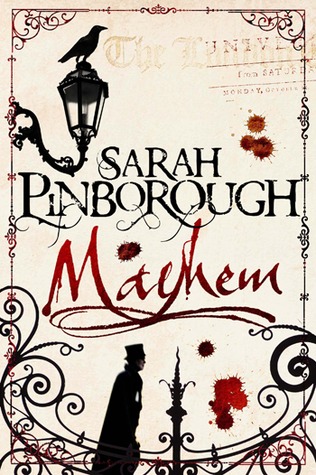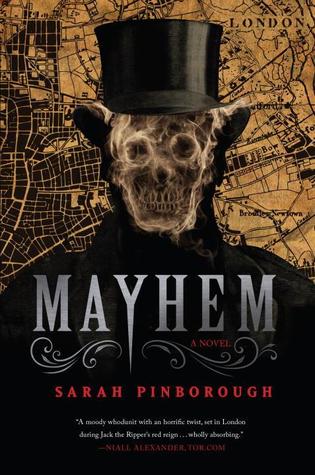I've been on a bit of an Agatha Christie binge lately, helped along by Masterpiece Theater and their fabulous renderings of some of the best Hercules Poirot and Miss Marple mysteries. Although she wrote more than just the Poirot and Marple series - did you know she wrote romance novels under the pseudonym Mary Westmacott? - Christie will always be known as the Queen of Mystery. She's also the most-read novelist of all time. We know so much about her as a novelist, but little is ever discussed about her personal life.
Of course this wasn't always the case. In 1926, the Queen of Mystery made headlines around the world when she herself disappeared. It was a Friday, December 23, when Agatha Christie kissed her daughter goodnight and left her home in Berkshire around 9:45 pm and drove away without explanation. Her abandoned car was later found near Guildford but without a trace of the author to be found. No clues. No ransom note. No sign of foul play.
Christie was enjoying the soaring heights of success. The Murder of Roger Ackroyd was her newest novel and was enjoying exceptional sales. As the days passed with no sign of the author, the country began to fear the worst. Police mobilized 15,000 volunteers to search the local area, including a local lake called the Silent Pool which Christie had used in one of her novels for a character's death. Suspicion also turned toward Christie's dashing WWI Airman husband, Colonel Archibald Christie (police even tapped his phone); suspicions perhaps not too unfounded, as it turned out.
For eleven days England feared the worst. Then, inexplicably, Christie was discovered safe and sound at a spa in Harrogate, signed in under the name of Theresa Neele (if you're keeping track of clues, this is one is important). If you're wondering what the hell? you're not alone. So was everyone else. Word on the street was that Christie was suffering from temporary amnesia, but really, no one was really talking, especially Christie herself.
What we do know:
1. The good Colonel Archibald was indeed playing hokey-pokey on the side. He had found himself a mistress by the name of Nancy Neele (ahem, note the name) and was, in fact, spending the very weekend of the disappearance cooped up in a love-nest with his mistress. Prior to Christie's disappearance that night, the Colonel had informed Agatha that despite twelve years of marriage and a child together, he had fallen in love with the good Ms. Neele and wanted a divorce.
2. Earlier in the year, Christie's mother, with whom she was quite close, had passed away. It had fallen to Christie to deal with the post-death arrangements as well as the closing up of her childhood home. Christie's husband, the Colonel, being otherwise occupied (see #1).
3. Christie wrote several confusing (or misdirecting?) letters just prior to her disappearance. One was to the local police constable stating that she feared for her life. Another was to her brother-in-law (Colonel Archie's brother) telling him she would be leaving on a spa vacation shortly. Indeed she would.
4. While the country was expecting the worst and all resources mobilized, Agatha placed an advertisement in the London Times stating that Mrs Theresea Neele was looking to get in touch with relatives and they could find her at the spa in Harrogate. It wasn't until her fellow guests at the spa began note the similarities between "Theresa Neele" and the missing Agatha Christie that the whole thing blew up. Colonel Christie drove down to the spa, scooped her up and that was that.
5. England was, needless to say, absolutely furious. Most people believed that the entire thing either was a staged publicity stunt set up by Christie's publisher to up the sales of her book, despite doctor's statements to the contrary or a personal vendetta by Christie herself to punish her wayward husband. The wasted resources and - most likely - the disappointment over a possible national tragedy turning into a simple spa visit inspired righteous indignation as only the English can produce.
6. The official word from the Christie camp seemed to claim temporary amnesia brought on by stress, although incident was swept under the rug as quickly as possible and never officially spoken of by the author herself ever again. She and the Colonel never lived together again and their divorce became final in 1928. How she put her life back together is another story altogether.
The disappearance of Agatha Christie remained one of the most gossiped-about events of the early part of the 20th century. But for me, it is only a glimpse into what must have been one of the most excruciatingly painful periods of Christie's life. The death of her mother; a husband who was obviously crappy even before he requested a divorce. This was 1926 when the Colonel would have every right, despite his philandering and downright crappiness, to expect to obtain full custody of their daughter. While her writing may have been a success, her personal life was completely disintegrating.
So did Christie suffer from temporary amnesia? Frankly, it's none of my business. I'm simply thankful that she made it through that period of her life and went on to find stability, happiness, and a typewriter. Because if she hadn't, the world would be a lesser place.
Oh, and one last thing. In 2013, a very valuable silver cigarette case came up for auction in London. It was fondly inscribed to a certain man from Mr. and Mrs. Christie in 1926. The man in question happened to be the person who blew the whistle on Agatha at Harrogate Spa all those years ago, alerting authorities as to where their missing author really was. Make of that what you will, super-sleuths.













































